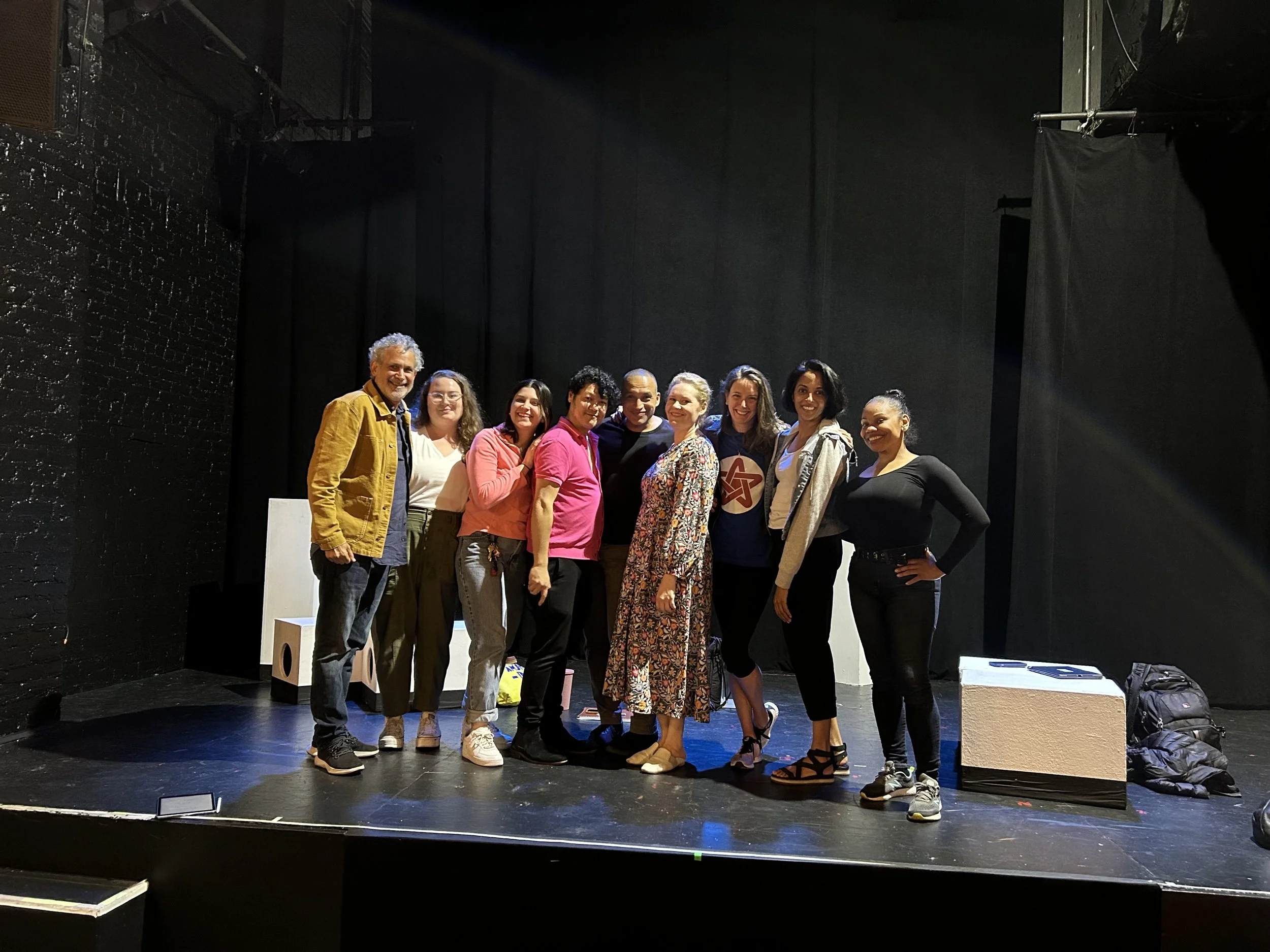Theater Therapy
October 1, 2024
By Wayne L.Firestone and David Winitsky
After a year of heartbreak, hurricanes and headaches that have not subsided, we think our whole Jewish community could really use a good therapist. Or at the very least, a good laugh. Or perhaps even a good cry.
And where better to find these small joys than in an unexpected moment in the dark safety of a theater? For more than a century, the theater has been a place of refuge for Jew to release an overflow of tension and anxiety.
Indeed, “catharsis” was the word from audience members attending the opening night performance of the inaugural Festival of New Jewish Plays at the Colonial Theater in the Berkshires, presented by the Jewish Plays Project, the nation’s most active developmental theater for new Jewish plays, the Berkshire Theatre Group and plays2gather, a new initiative bringing interactive playwriting salons to audiences in the U.S. and Israel.
The reading of The Last Yiddish Speaker, a dark comedy by Deborah Zoe Laufer which won the 13th National Jewish Playwriting Contest, took us to a dystopian future in a post-insurrection, Christian Nationalist America, where a hormonal teenager hungry for her forbidden Jewish identity and stolen gender rights fights with her father – who just wants to keep her alive. When a 1000-year old Yiddish speaking Bubbe is thrust onto their doorstep - a woman whose past was too far familiar to many of us - her Jewish wit, wisdom and language became a balm for all of our souls, and a gift from one generation to the next.
“Was this play about 2029, or 2024?” some in the breathless crowd asked. Whether or not people found the play a warning from the future or a report from the present, the play showed us that we needed to reflect on the traumas of the past and the present and we needed to do it as a collective and not at home alone. We needed to connect with friends and strangers to respond to our own trauma— indirectly, but with all of our senses.
Fortunately, Jewish theater has seen these moments before. From the passion of S. Ansky’s The Dybbuk, to the political tensions of Odet’s Awake and Sing; from the sly comedy of Neil Simon’s Brighton Beach trilogy to the towering moral cri-de-coeur of Kushner’s Angels in America; and right up to recent Broadway seasons, with Josh Harmon’s searing Prayer for the French Republic and Alex Edelman’s riotous Just for Us, the theater is always poised to help our community reflect and heal during our most challenging moments.
That healing impulse took center stage at the Festival in an evening titled “One One Foot (OOF!) Six 10-Minute Plays for Healing”. Drawn from over 275 submissions from around the world, these six short pieces interpreted Hillel the Sage’s Golden Rule (“That which is hateful to you, do not do to others”) on one foot with Jewish stories set in Havana, a satirized spaceship (complete with Jewish space laser!) and an Upper West Side mikvah. Accompanied by Shabbat song and prayer – and of course a little nosh afterwards –, these playwrights represented diverse genders, ages (20-78), and locations (from California to Japan), and interpreted Jewish teachings and traditions through theater that actualized the healing we need today.
(They also answered the unasked question — can you a Jew say something with a beginning, middle and end in just ten minutes?)
One of the OOF! playwrights explained her simple play an “Amazing Pesadich Chocolate Cake,” as the most honest way she could convey the hope that a sweet baking holiday recipe aroma could be smelled and provide comfort to a hostage in captivity. Another playwright imagined a talking donkey resolving a feud between a Palestinian and an Israeli by challenging them to keep arguing while standing on one foot.
Perhaps the greatest testament to hope amidst trauma came from the roar of the three person lion puppet (designed by the Jim Henson Workshop) that starred in the family musical “The Library Lion,” by the Israeli artists of Boston’s Adam Theatre. The Lion’s roar and breaking of library quiet rules was a call for help that every child and parent could understand and not an excuse to be more frightened.
Certainly, the real world troubles and traumas of the current year did not vanish for the attendees after the shows but they did provide new insights, formats and a trusted safe space to explore these discomforts. The closing show Out Of Character by Tony Award winner Ari’el Stachel, bravely shared the mental health and Jewish identity challenges of a brown skinned Yemenite Jewish immigrant growing up in America from a childhood defined by 9/11 through young adulthood including 10/7. The audience experienced a masterful performance of a Millennial struggling with a disorder that some were not even familiar with beforehand.
Jewish theater helps interpret and share the evolving Jewish story in a manner that invites Jewish and non-Jewish friends to join and embrace our common fears and curiosities. In the same period when the US Surgeon General has declared a mental health crisis in this country fueled by social media bullying, hate and loneliness, it is crucial that we hear the loud roar of the lion as well as the whispered anxieties and hopes of the audience.
David Winitsky and Wayne L. Firestone are co-producers of the Festival of New Jewish Plays and respectively the founders of The Jewish Plays Project and plays2gather.



